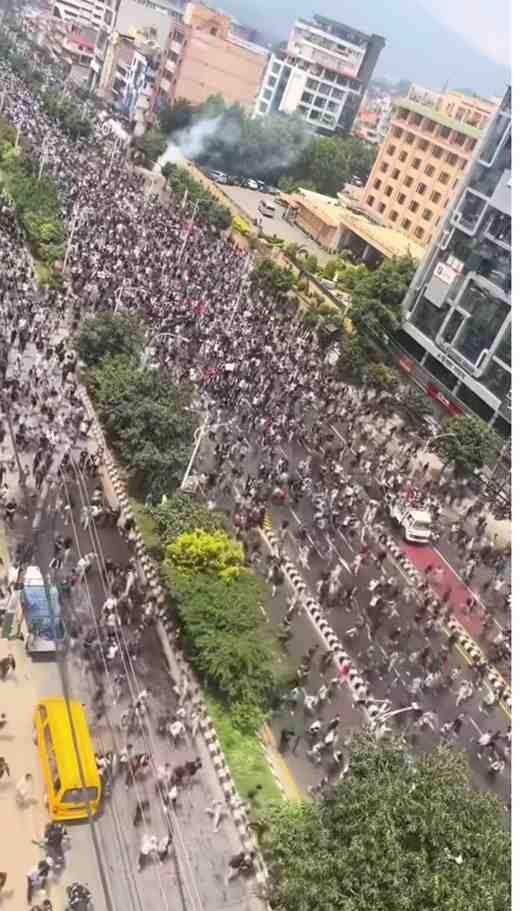
How Nepal’s Political Crisis is a Strategic Challenge for India
Nepal is currently navigating a period of unprecedented political turmoil, fueled by a powerful, youth-led uprising. What began as protests against a social media ban has quickly morphed into a national movement against corruption and misgovernance, forcing the resignation of Prime Minister K.P. Sharma Oli. For India, this isn’t merely a neighboring nation’s internal affair; it’s a strategic crisis with profound implications for its security, economy, and geopolitical standing in the region.
The Unfolding Crisis in Nepal Dubbed the “Gen Z” movement, the protests are a potent expression of a generation’s frustration with a political elite seen as detached and self-serving. The initial social media ban acted as a catalyst, sparking broader anger over issues like high unemployment and systemic corruption. As the protests escalated into violent clashes and the resignation of the Prime Minister, a political vacuum has emerged, creating a period of deep uncertainty and instability.
Economic and Business Impact on India
The unrest in Nepal has a direct and significant impact on India’s economic interests, particularly in the border regions and for several key Indian companies.
Trade Paralysis: The chaos has brought cross-border trade to a virtual halt. Key land crossings, such as the one in Jaynagar, Bihar, which depend heavily on trade with Nepal, have seen businesses suffer massive losses. The disruption of supply chains affects the flow of essential goods, impacting economies on both sides.
Risk to Indian Investments: Over 150 Indian companies, including major players like Hindustan Unilever (HUL), Dabur, and Varun Beverages, have a significant presence in Nepal. The political instability has made the investment climate highly uncertain, with concerns ranging from supply chain disruptions to potential damage to facilities. While Nepal’s contribution to their overall revenue may be small, a prolonged crisis could lead to significant financial setbacks and a loss of investor confidence.
Energy Projects at Risk: India’s ambitious plans for energy cooperation with Nepal, including joint hydropower projects, are now hanging in the balance. Delays or cancellations of these projects would not only affect India’s energy security but also undermine its goal of becoming a regional energy hub.
Strategic and Diplomatic Concerns
Beyond the economic fallout, the crisis in Nepal poses a complex strategic challenge to India’s foreign policy and security apparatus.
Border Security: The long and open border shared by the two nations is a major vulnerability. The law-and-order vacuum and reports of mass jailbreaks have raised alarms in New Delhi. Indian border forces have been placed on high alert to prevent the potential for increased cross-border smuggling, human trafficking, and the infiltration of criminal or militant elements.
China’s Growing Influence: Nepal’s instability is a geopolitical opportunity for China. As India grapples with the fallout, Beijing could use the political vacuum to strengthen its economic and political influence in the region. This poses a direct challenge to India’s strategic position and its “Neighbourhood First” policy, as it risks losing a key buffer state to a rival power.
Diplomatic Dilemma: India’s response has been one of cautious diplomacy. The Ministry of External Affairs has urged all parties to exercise restraint and resolve the issues peacefully. However, India’s traditional close ties with Nepal mean it cannot simply take a hands-off approach. It must navigate a delicate balance: supporting the aspirations of the Nepali people while avoiding any actions that could be perceived as interfering in its internal affairs or siding with any particular political faction.
The events in Nepal are a stark reminder of the interconnectedness of South Asia. The current crisis is not an isolated incident but part of a broader trend of political upheaval in the region. For India, a swift and stable resolution in Nepal is not just a matter of good neighborly relations, but a crucial element of its own national security and strategic stability.
For more articles click here










